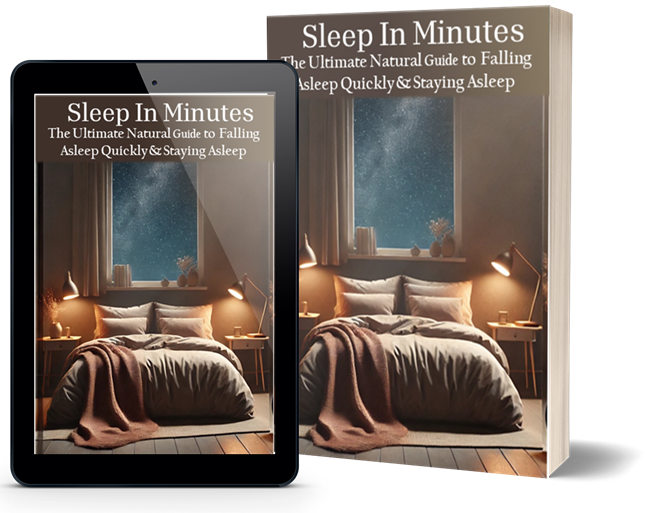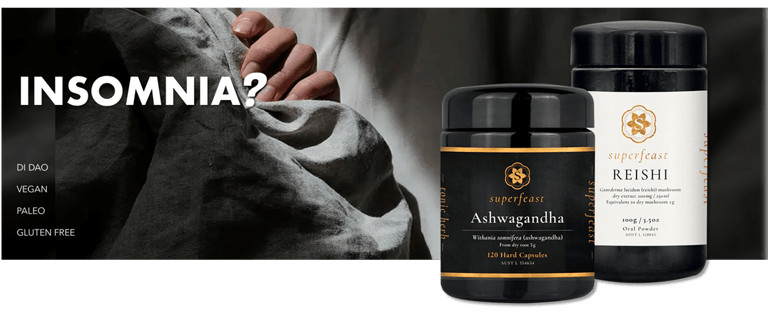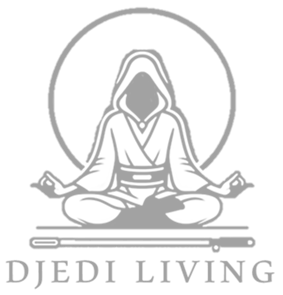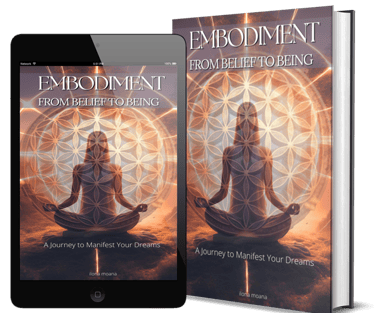Master the Art of Sleeping: How to Fall Asleep Fast and Stay Asleep
Struggling to fall asleep fast or stay asleep? Discover proven tips for a better nights sleep and learn how our guide can help you sleep soundly every night.
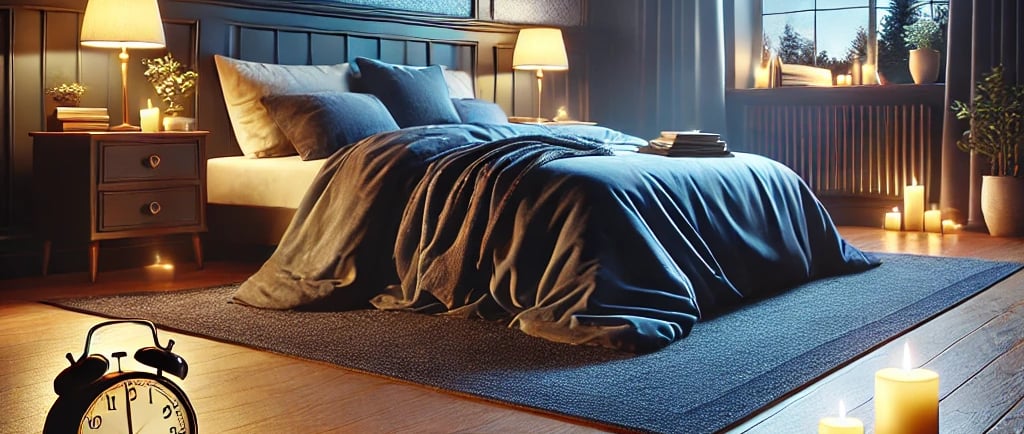

Sleep in Minutes: Master Natural Ways to Fall Asleep Fast and Stay Asleep All Night
Sleep. It’s the foundation of good health, yet millions struggle to get enough of it. Whether it’s difficulty falling asleep, waking up multiple times during the night, or feeling unrefreshed in the morning, poor sleep can affect your energy, focus, mood, and overall well-being.
But the solution doesn’t have to involve pills or complicated routines. The key lies in understanding sleep, your body’s natural rhythms, and how to create the right conditions for restorative rest.
This guide will introduce you to proven, non-medicated techniques to help you fall asleep quickly and stay asleep through the night. At the end, we’ll share how “Sleep in Minutes: The Ultimate Natural Guide to Falling Asleep and Staying Asleep” can take your sleep transformation to the next level.
Why Sleep is Essential for Health
Sleep isn’t just about resting—it’s when your body and mind repair and regenerate. During sleep, your brain processes information, consolidates memories, and clears out toxins. Your body repairs tissues, regulates hormones, and strengthens the immune system.
Without sufficient high-quality sleep, you might experience:
Fatigue and low energy
Poor concentration and memory
Increased stress and irritability
A weakened immune system
Long-term risks like heart disease, diabetes, and depression
Sleep is your body’s natural reset button, and getting the right amount can make all the difference in your productivity, mood, and overall health.
Setting the Stage for Natural Sleep
Your environment plays a critical role in how easily and deeply you sleep. By optimizing your bedroom, you can create a space that encourages relaxation and rest.
Eliminate Light: Even small amounts of light can interfere with melatonin production. Use blackout curtains or an eye mask to ensure complete darkness.
Control Noise: Sudden or constant noise can disrupt your sleep cycles. White noise machines, earplugs, or a fan can help drown out disturbances.
Adjust the Temperature: A cool room—around 65°F (18°C)—is ideal for most people. Breathable bedding and adjustable layers can help maintain comfort.
Declutter Your Space: A tidy, peaceful environment signals to your brain that it’s time to relax.
Your bedroom should feel like a sanctuary dedicated solely to rest and relaxation.
Natural Techniques to Fall Asleep Fast
If you struggle to fall asleep, it may be due to an overactive mind or habits that work against your body’s natural rhythms. Fortunately, there are several effective techniques to help you drift off quickly.
Relax Your Body and Mind
Deep relaxation is key to transitioning from wakefulness to sleep. Techniques like the 4-7-8 breathing method (inhale for 4 seconds, hold for 7, exhale for 8) can calm your nervous system and prepare your body for rest.
Progressive muscle relaxation, where you tense and release each muscle group, can also help release physical tension and promote a sense of calm.
Create a Wind-Down Routine
Your body thrives on routine. Spending the hour before bed on calming activities like reading, journaling, or meditating signals to your brain that it’s time to wind down. Avoid screens during this time, as the blue light can suppress melatonin and delay sleep onset.
Avoid Stimulants and Heavy Meals
Caffeine and alcohol can disrupt your sleep cycles, even if consumed hours before bed. Similarly, heavy or spicy meals can lead to discomfort and interrupted sleep. Opt for light, sleep-friendly snacks like bananas or almonds if you’re feeling hungry.
Staying Asleep All Night
Falling asleep is only half the battle—staying asleep is just as important. Waking up frequently or for extended periods can prevent your body from completing its essential sleep cycles.
Address the Root Causes of Disruption
Common culprits for waking up during the night include stress, fluctuating blood sugar levels, or environmental disturbances. By maintaining a consistent bedtime routine and managing stress with relaxation techniques, you can minimize these disruptions.
Embrace Midnight Calm
If you do wake up, avoid checking your phone or the clock, as this can create anxiety and make it harder to fall back asleep. Instead, focus on slow, deep breaths or gentle visualization exercises.
The Power of Tracking Your Sleep
One of the most effective ways to improve your sleep is to track it. By identifying patterns—what’s working and what’s not—you can make targeted changes to your routine.
In “Sleep in Minutes,” you’ll find a customizable sleep tracker that helps you monitor everything from your bedtime habits to environmental factors, giving you the insights you need to optimize your sleep.
Introducing "Sleep in Minutes"
While this blog provides a wealth of tips to get started, “Sleep in Minutes: The Ultimate Natural Guide to Falling Asleep and Staying Asleep” takes your journey to the next level.
This comprehensive guide is packed with:
Step-by-step instructions for falling asleep quickly using proven non-medicated techniques
Advanced relaxation strategies tailored to your needs
A customizable sleep tracker to uncover hidden sleep disruptors
Insights into how your habits and environment impact your rest
With actionable advice and tools, this guide empowers you to reclaim your nights and wake up refreshed, naturally.
Ready to Transform Your Sleep?
Imagine drifting off effortlessly, sleeping deeply through the night, and waking up full of energy and focus. Good sleep is within your reach, and it starts with the right tools and guidance.
“Sleep in Minutes” offers everything you need to master your sleep naturally, without medication. It’s time to leave sleepless nights behind and embrace the restorative power of quality rest.
Click below to get your copy of “Sleep in Minutes” (with bonus downloadable sleep tracker) and start sleeping better tonight.
Understanding the Science of Sleep
Sleep is a carefully orchestrated process governed by your body’s internal clock, or circadian rhythm. This 24-hour cycle responds to natural light and darkness, signaling your body when to wake and when to rest.
Sleep itself occurs in cycles, each lasting about 90 minutes, and includes:
Light Sleep: The transition from wakefulness to sleep, where your body begins to relax.
Deep Sleep: Essential for physical repair and growth.
REM Sleep: When dreaming occurs, helping process emotions and solidify memories.
Disruptions to these cycles—whether from stress, environmental factors, or poor habits—can leave you feeling unrefreshed, even after spending hours in bed.
Copyright © 2025 Djedi Living. All rights reserved.
Disclaimer
This site is not intended to provide and does not constitute medical, legal, or other professional advice. The content on DjediLiving.com is designed to support, not replace, medical or psychiatric treatment. Please seek professional care if you believe you may have a condition.
DjediLiving.com may earn affiliate income from qualifying purchases.
Before using the site, please read our


